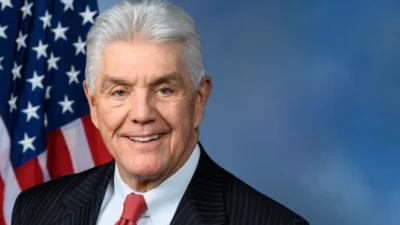WASHINGTON, D.C., April 7, 2009 - Today, House Natural Resources Committee Ranking Member Doc Hastings (WA-04) and House Committee on Oversight and Government Reform Ranking Member Darrell Issa (CA-49) sent the attached letter to Secretary of the Interior Ken Salazar to express their concerns about the Department of the Interior’s recent actions to limit the public comment process regarding offshore energy development on the nation’s Outer Continental Shelf (OCS).
Text of the Letter:
“In February, when the Department of the Interior announced its decision to extend the public comment period for the development of a new five-year energy plan by six additional months, you suggested the decision was based on a desire to give “additional time" to “states, stakeholders, and affected communities" so that they could “provide input on the future of our offshore areas."
Unfortunately, the public comment system currently in place fails to meet a simple standard of inclusion necessary to promote and facilitate an open exchange of public opinion. As Members of Congress who strongly believe that the American people should have the opportunity to fully participate in the critical discussion over the future of our nation’s energy policy, we hope you will do everything in your power to resolve this issue as quickly as possible.
In contrast to previous comment collection efforts under both Republican and Democratic administrations, the Department’s new system leaves interested parties with only two realistic options for making their views known:
1. Physically mail or hand-deliver a copy of their comments to the department in Washington, D.C., or
2. Attempt to navigate the sprawling online database known as regulations.gov - where users must first successfully input “docket IDs," “legacy numbers," and an “RIN" before they have any chance of advancing to the main comment submission page.
The Department’s new policy is an unconstructive change from its previous practice of collecting public comments through an inclusive, user-friendly system. The Department’s public comment process was especially user-friendly under the Bush administration, which enabled Americans to easily submit their comments through a simple email address. The Department should immediately reinstate the user-friendly email public comment system.
Additionally, we were troubled to learn that the Internet webcast of the Department’s five-year plan-related public meeting held in Atlantic City on April 6, 2009 ended arbitrarily at noon, nearly eight hours before the completion of the actual meeting. Since many Americans took their personal time to participate in this public comment session until 8 o’clock in the evening, we cannot understand why the Department would end the webcast at the time you departed and before the majority of the public finally had their chance to stand up, speak and be heard. We encourage the Department to review and improve this policy immediately prior to the three upcoming hearings on this important topic.
Americans deserve every opportunity to express their opinions regarding the Department’s upcoming decision and observe the Department’s public deliberation process. We strongly encourage the Department to change these policies to ensure that Americans voices can and will be heard on this critical debate.
Thank you in advance for your consideration. Please do not hesitate to contact us with questions or concerns."









